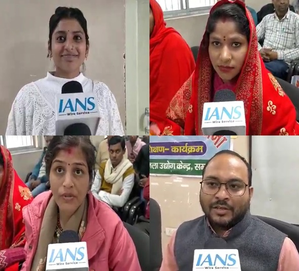New Delhi, Dec 29 (IANS) Under the Bihar Laghu Udyami Yojana, 1,752 individuals were awarded training certificates at the District Industry Center premises after completing courses in 61 different trades. Along with the certificates, each trainee received the first instalment of Rs 50,000 to kickstart their ventures.
Notably, the programme witnessed significant participation from young women, highlighting their growing entrepreneurial aspirations.
Vivek Kumar Sharma, General Manager of the District Industry Center, explained that the scheme targets economically weaker sections with an annual income of less than Rs 72,000. Out of 2,038 selected candidates from the district, 1,752 were trained in diverse trades such as beauty services, spice production, flour milling, mosquito net manufacturing, fish farming, and more.
“The first instalment of Rs 50,000 enables beneficiaries to procure tools and materials to start their businesses,” Sharma shared with IANS adding, “Once the beneficiaries submit the utility report for the Rs 50,000, they will receive a second instalment of Rs 1 lakh to further expand their businesses. Upon submitting the investment report for this amount, an additional Rs 50,000 will be provided by the government, totalling Rs 2 lakh in financial assistance.”
The programme aims to empower economically weaker individuals by enabling them to start their ventures and improve their financial conditions.
Juhi Barnwal from Morwa Block of Samastipur district shared with IANS, “I received training in beauty services. With the Rs 50,000, I will purchase equipment and open a beauty parlour. Once I upload photos of my setup, I will receive another instalment of Rs 1 lakh.”
Lovely Kumari, trained in spice production, said, “I will source raw spices from rural areas, process them, and sell packaged spices in the market. The Rs 50,000 instalment has been very helpful.”
Pooja Jaiswal from Warisnagar highlighted her plans, saying, “I was trained in mosquito net production. The first instalment will help me manufacture nets that can be used for mosquito protection, fish farming, and crop safety fencing in rural areas.”
This initiative is set to transform lives by providing training and financial support, fostering self-reliance, and boosting the local economy.
–IANS
rs/kvd






























